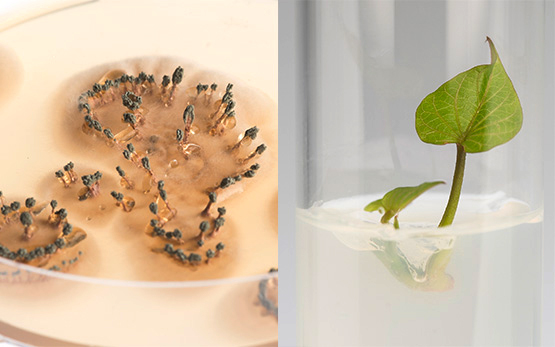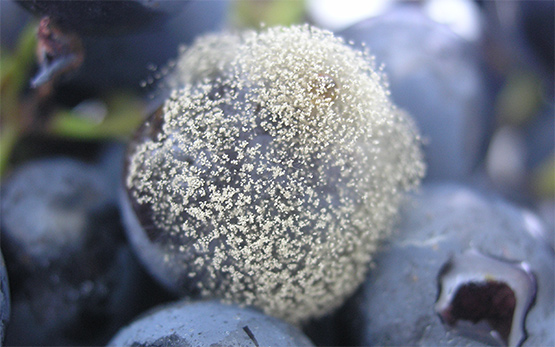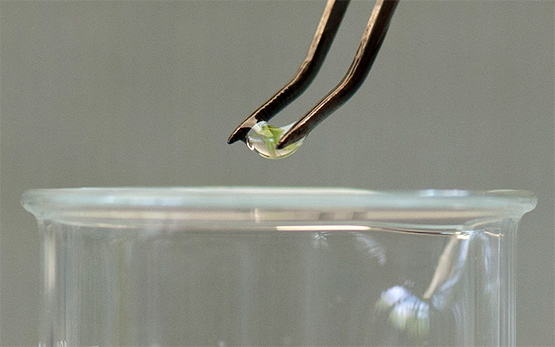Fungal diseases linked to climate change and agronomic practices are recurrent problems for which new solutions must be found. Research into field crops and viticulture is geared to the discovery of naturally occurring products to control fungal diseases as well as to the development of natural antifungal products for sustainable farming, the identification of pathogenic fungi and their epidemiological monitoring, maintenance of the database and of the mycological collection, varietal resistance, and the development of risk-forecasting models available on the Internet.
Mycology has successfully innovated by transferring its know-how to the clinical pathology sector, thereby offering a skills platform between agriculture and medicine both in microscopy and biochemistry as well as at the analytical and molecular level, for which it has received external funding.
Plant biotechnology addresses the needs of NAP (National Action Plan projects for the conservation and sustainable use of genetic resources) via the development of in vitro culture methods, the maintenance of the national seed-potato conservatory and the molecular identification of varieties, as well as the disinfection of varieties infected by viruses.








